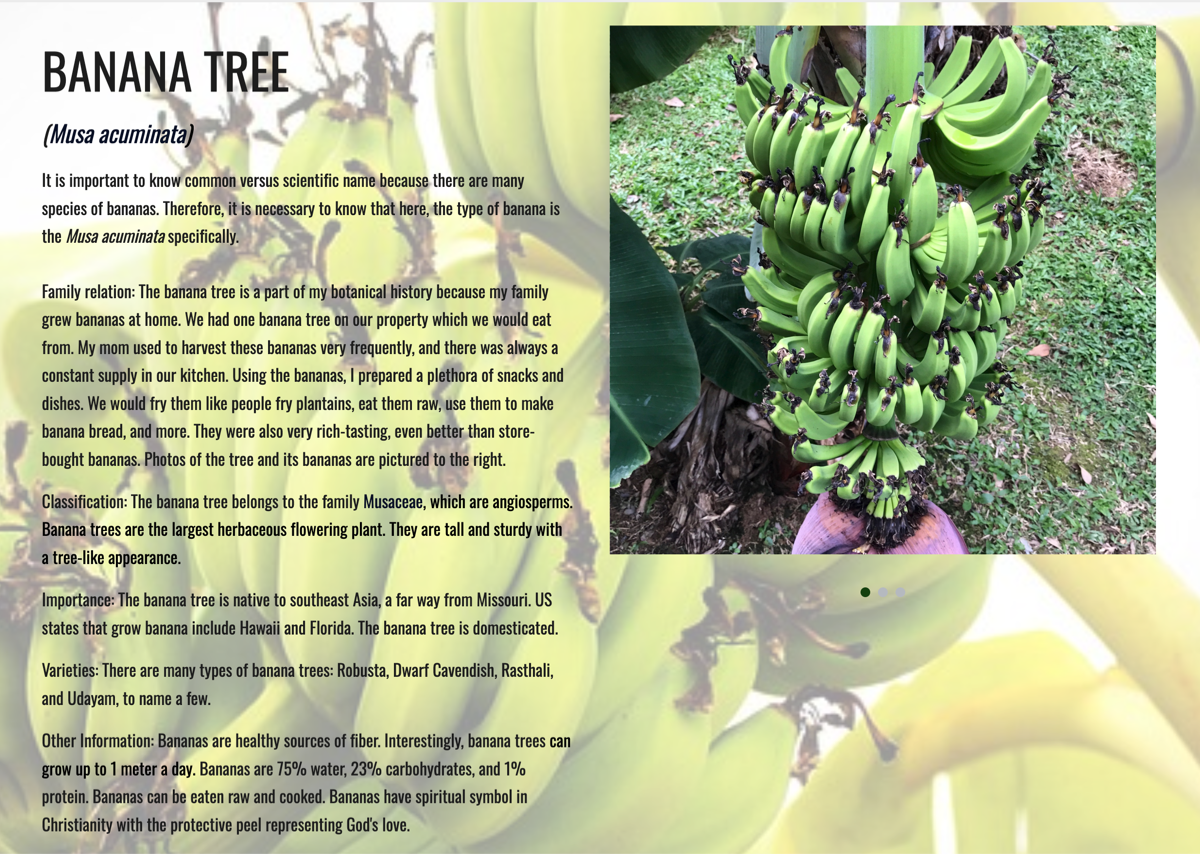In the MICDS Upper School Exploratory Botany elective, 18 students embarked on a journey of botanical discovery, exploring the fascinating world of ethnobotany. This field examines the intricate relationship between people and plants within specific cultures and regions.
“Our exploration of ethnobotany was to learn how to combat ‘plant blindness,'” explains Upper School Science Teacher Laura Bradford. “This phenomenon leads people to overlook the significance of plants in their everyday lives.”
The project culminated with a personal touch: students interviewed family members, uncovering their own family’s unique botanical histories. This research fueled the creation of engaging websites that showcased the meaningful impact of plants on the daily lives and traditions of their families. Bradford said, “By exploring their own family histories, students gained a deeper appreciation for the vital role plants play and understood the importance of informing future generations of these plants.”
Students closely researched their family’s connections to plants, from traditional medicine and culinary uses to cultural significance and family farming activities. They unearthed ancestral recipes featuring local herbs, the roots of family traditions, and the meaning behind their family’s love of particular plants.
The research was curated into a series of personalized websites, each a unique window into their family stories and botanical discoveries. The digital archive features a diverse array of plants, from vibrant marigolds and cherry tomatoes to the curry leaf and the use of okra across many cultures, offering a glimpse into each student’s heritage.
Zoe Dickherber ’26 enjoyed discovering her family’s botanical history through this project. “Being able to talk to my family about something that has always been an important staple at gatherings or just in our daily lives really broadened my knowledge regarding the importance of plants. This project helped me understand how crucial it is for everyone to be aware of the plants that exist within their lives–even if it seems that their impact is small–because those plants actually have a larger impact on our lives than we may think,” she said.
The study of ethnobotany extends far beyond personal narratives, offering valuable insights into crucial global challenges such as food security, climate change, and biodiversity conservation. Bradford is thrilled with the student outcomes, recognizing this project as a valuable step towards fostering a deeper understanding of plants, culture, and the interconnectedness of our world.
Click here to view the “Our Botanical Stories” website.













